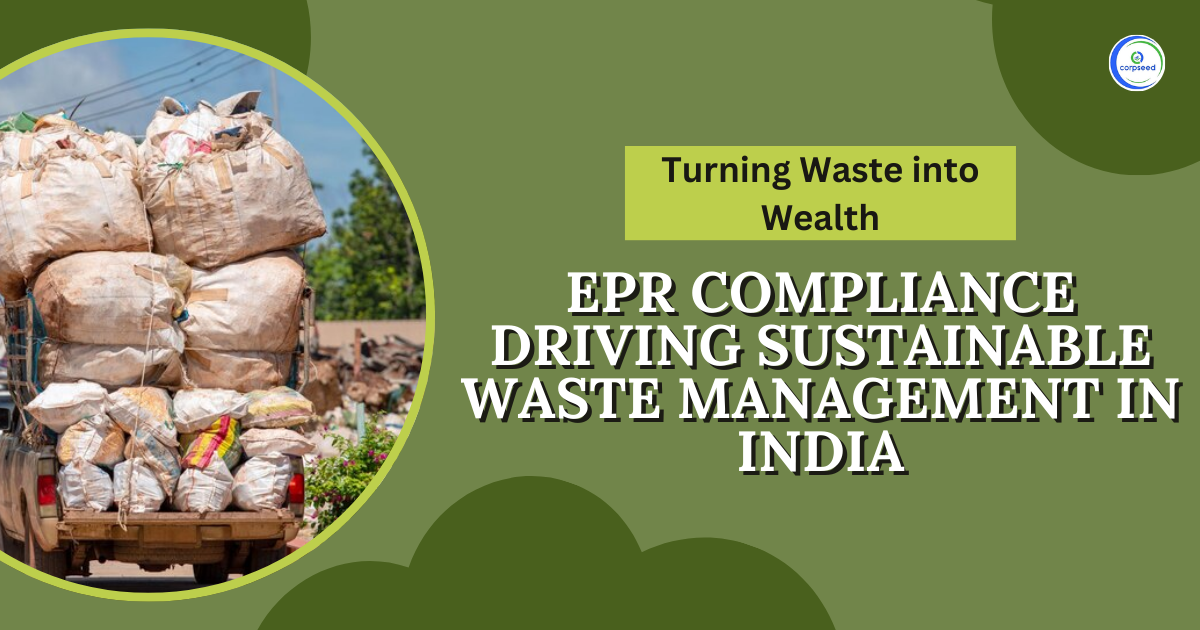Extended Producer Responsibility (EPR) registration is a regulatory framework mandated by the Central Pollution Control Board (CPCB), ensuring that producers, importers, and brand owners take full accountability for the environmental impact of their products. It has become a major part of India’s environmental policy.
Table of Contents
But once an EPR authorization is issued, it may not always remain the same. Businesses are often required to make alterations such as updating product categories, recycling partners, or company details.
What Is an EPR Authorization Amendment?
An EPR Authorization Amendment is an official modification made to an existing EPR certificate issued by the Central Pollution Control Board (CPCB). It becomes mandatory when a company that already holds EPR authorization for electronic waste, plastic waste, or battery waste needs to update any part of its registered information. These alterations may include product categories, company details, or recycling partners.
Applying for an amendment ensures that the EPR authorization remains accurate, valid, and compliant with current business operations and CPCB norms. It also helps maintain transparency in waste management and supports smooth regulatory communication.
Why Timely Amendment Important?
Many companies delay or direct the amendment process after making business changes. This can lead to serious compliance matters and administrative penalties from CPCB. Updating your authorization timely manner guarantees that your business information remains accurate and legally valid at all stages of operation. A timely amendment is important as it helps you:
- Maintain Legal Compliance: Keeping your authorization updated ensures that your business operations continue to fulfill CPCB’s latest regulatory and environmental requirements without any compliance gaps.
- Build Trust with Regulatory Authorities: Appropriate and transparent information on your authorization builds credibility with CPCB and state pollution boards, demonstrating your company’s integrity and accountability.
- Avoid Penalties or Show-cause Notices: Time-to-time amendment applications safeguard you from legal penalties, official warnings, and the risk of suspension or cancellation of your authorization certificate.
- Ensure Transparency in Waste Management Reporting: Up-to-date details enhance the accuracy of your annual EPR returns and waste management reports, supporting data integrity and environmental responsibility.
- Enhance Brand Credibility: Companies that adhere to compliance guidelines gain credibility in the market and show their commitment to sustainable operations and environmental care.
- Support long-term sustainability goals: Regular amendments permit your organization to align with growing business activities while maintaining a responsible approach to environmental management and waste control.
--------------Blog Contact Form-------------
When Do You Need an EPR Authorization Amendment?
Businesses must apply for an amendment whenever there is a major amendment to their registered EPR details. The following are some common reasons for applying:
- Change in Company Name or Address: If the registered office or manufacturing address changes, CPCB must be updated.
- Change in Authorized Person: When a new individual becomes the authorized signatory or compliance officer.
- Modification in Product Categories: If your business starts manufacturing or importing new product types or models under e-waste, plastic waste, or battery waste categories.
- Change in Recycling or Collection Partners: When you partner with new recyclers or Producer Responsibility Organizations (PROs).
- Update in Quantity or Targets: If your waste collection or recycling targets change due to high production or sales.
- Legal Structure or Ownership Changes: Mergers, acquisitions, or any significant restructuring require amendment approval.
Legal Basis for EPR Amendment
The requirement for EPR amendment comes under the E-Waste (Management) Rules, 2022, Plastic Waste Management Rules, 2016, and Battery Waste Management Rules, 2022.
The CPCB is the main authority responsible for issuing and amending EPR authorization in India. As per these rules, every producer, importer, or brand owner (PIBO) must:
- Register on the CPCB EPR portal.
- Apply for authorization under the correct waste category.
- Request an amendment when any detail of the approved authorization changes.
Failure to update or amend authorization may result to penalties, suspension, or cancellation of the EPR certificate.
Step-by-Step Process to Apply for EPR Authorization Amendment
The process of applying for an EPR Authorization Amendment is streamlined but needs thorough attention to detail. Every amendment should be correctly shown on the CPCB portal with appropriate documentation. Each step must be followed in right order to ensure fast approval and reduce the chances of delay or rejection.
Step 1: Visit the CPCB EPR Portal: Open the official CPCB EPR portal and sign in using your registered credentials. Always use the same user ID used for your original authorization to ensure smooth access and accurate record linking.
Step 2: Select the “Amendment” Option: After logging in, select Apply for Amendment. Your approved authorization details will appear. Select the relevant authorization number and proceed to make the required updates.
Step 3: Choose the Type of Amendment: Update the information you need to change, such as company name, address, product category, recycler partner, or authorized person details. Update each section carefully and attach the necessary verified records for accuracy.
Step 4: Upload the Required Documents: The CPCB portal requires certain documents to verify the amendment request. Common documents include:
- Copy of existing EPR registration
- Revised GST certificate (if address/name changed)
- New MoU or agreement with recyclers/PROs
- Updated product list or model details
- Board resolution for a new authorized person
- Any legal proof supporting the change
Step 5: Submit the Application: After reviewing all details, click “Submit” to finalize your amendment. Confirm that every document and entry is correct before submission. Once done, you’ll receive an acknowledgment number for future tracking.
Step 6: CPCB Review and Clarification: CPCB experts review your amendment request to verify all information. If they require clarification or extra documents, you’ll be notified via email or portal message. Respond quickly to avoid unnecessary delays.
Step 7: Approval and Updated EPR Certificate: When the review is complete, CPCB approves the amendment and uploads the revised authorization certificate. Use this updated certificate for all future submissions and compliance reports to remain fully compliant.
Also Read: What is an EPR Certificate for Import- Apply Online
Processing Time and Validity
Usually, CPCB takes 30 to 45 working days to process an amendment, depending on the complexity of your request and the completeness of the documents. The validity of the EPR authorization remains the same as the original approval unless otherwise mentioned.
In case you have expanded your product range or changed major business activities, CPCB may revise the validity timeline accordingly.
Conclusion
The EPR Authorization Amendment is not just a legal update, it’s a legal obligation that keeps your business operations aligned with India’s environmental regulations. It’s essential to comply with EPR registration requirement.
By following the right EPR registration process, receiving the EPR certification, paying the correct EPR fees, and keeping up with the EPR number, ensures that the business operates legally and ethically while demonstrating environmental responsibility.
Whether you are a manufacturer or an importer bringing products into India for sales purposes, early compliance with EPR standards helps future-proof your business, avoid penalties, and build a greener, more sustainable model.
FAQ`s
The latest amendment under the E-Waste (Management) Rules, 2022 focuses on online registration, traceability of waste, and stricter EPR targets for producers and recyclers.
You should apply whenever there is a change in your company name, address, authorized person, product category, or recycling partner details approved under your EPR certificate.
On average, CPCB takes around 30 to 45 working days to process an amendment, depending on the complexity of the change and the completeness of your documents.
In most cases, there is no separate fee for minor amendments. However, CPCB may charge a nominal processing fee for major modifications or document updates.
This portion of the site is for informational purposes only. The content is not legal advice. The statements and opinions are the expression of author, not corpseed, and have not been evaluated by corpseed for accuracy, completeness, or changes in the law.
BOOK A FREE CONSULTATION
Get help from an experienced legal adviser. Schedule your consultation at a time that works for you and it's absolutely FREE.
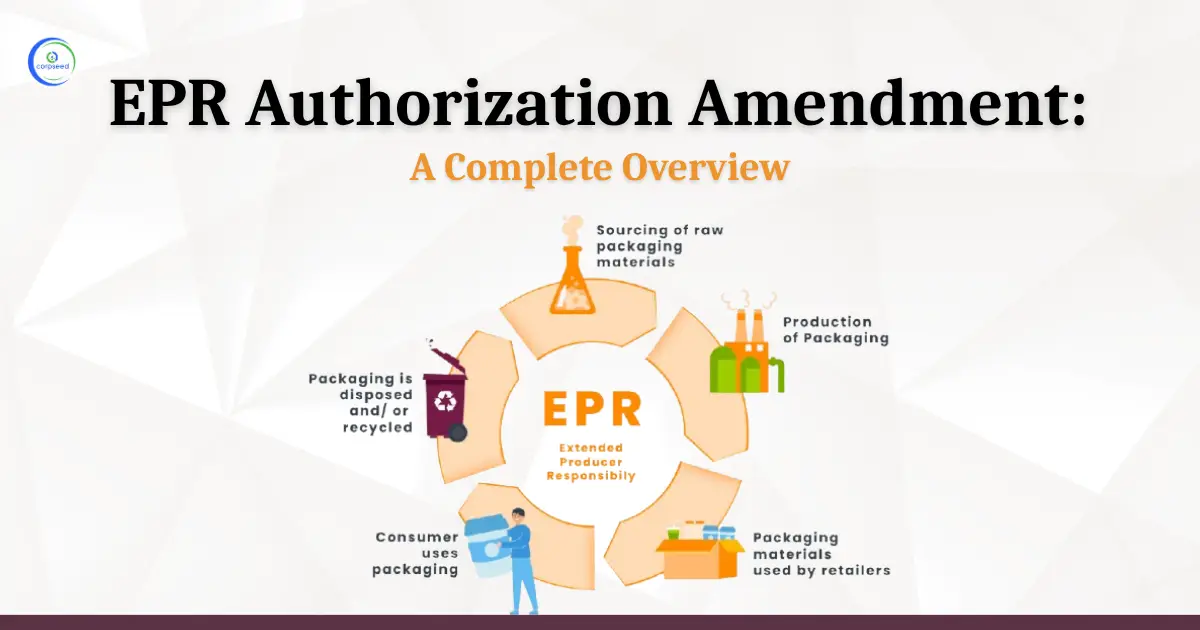

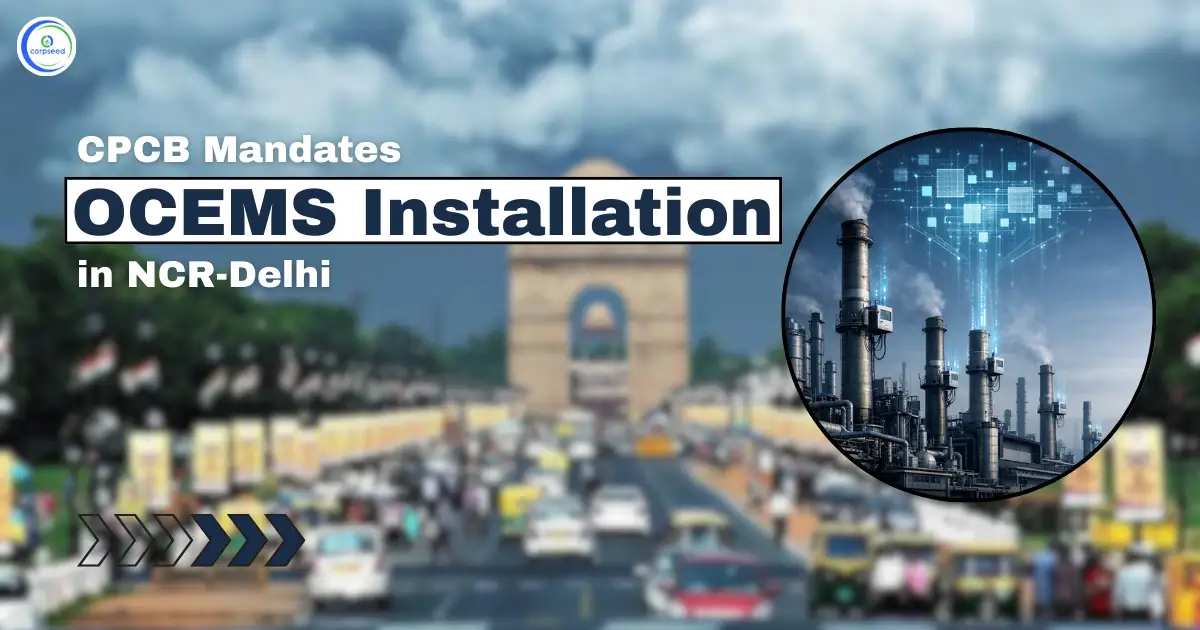
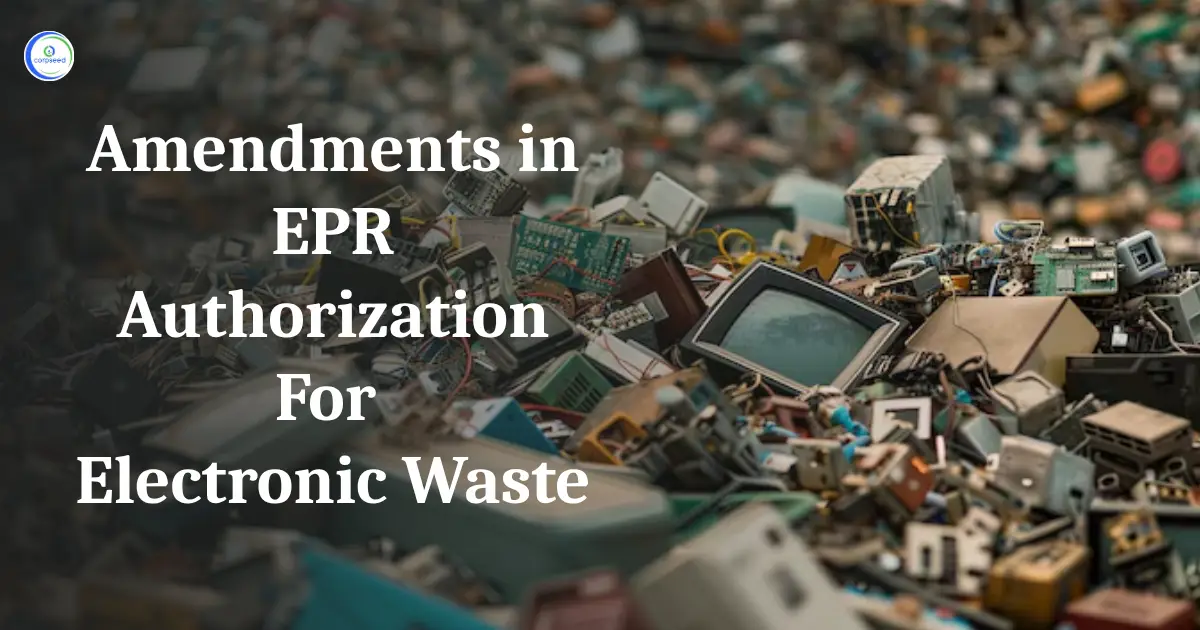
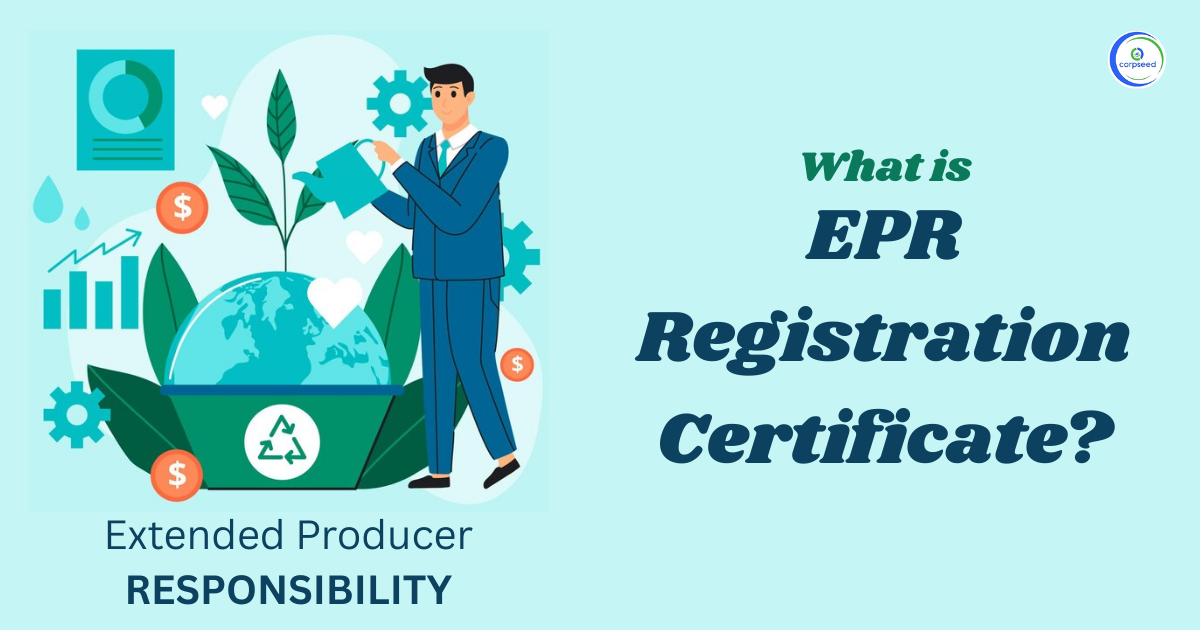
.webp)
